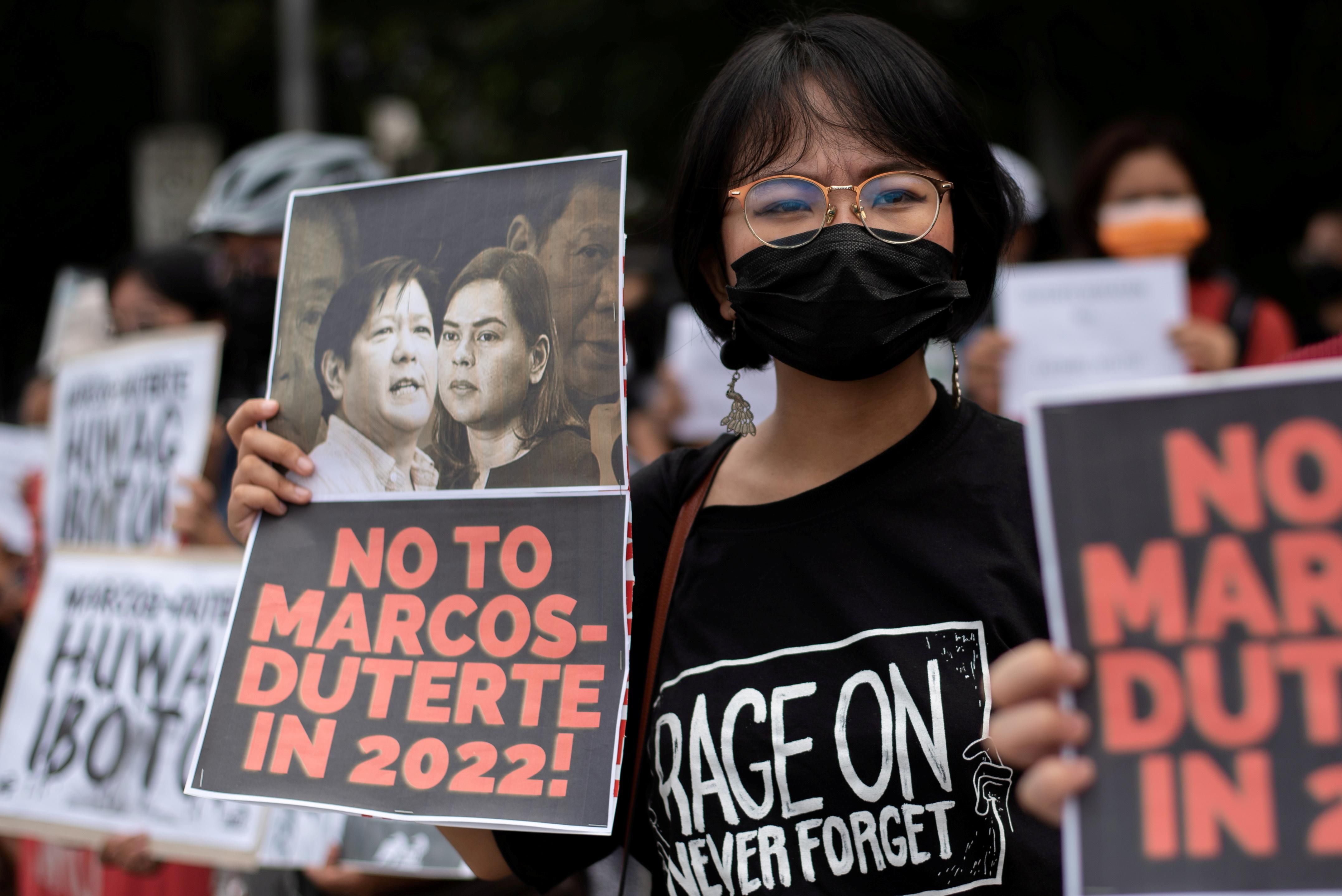Philippine elections have always been, Filipinos will candidly admit, a bit of a circus. Come campaign season, politicians fan out across the country, showing off their best tricks to lure voters into giving them their support.
So, what does it take to get elected president? Not coherent programs to cut widespread poverty and rampant corruption. Everyone knows those promises will surely not be kept.
The holy grail of Philippine politics is name recognition. Yet it's not enough to simply be famous. The golden ticket is to belong to a well-known political family.
Even better, join forces with another powerful dynasty — which is exactly what the two biggest names in Philippine politics today have done to win the May 2022 presidential election.
One half of that duo is Ferdinand Marcos Jr. If that name rings a bell it's because he's the son of the late dictator who ruled the Philippines with an iron fist for 21 years. The elder Marcos and his famously shoe-obsessed wife Imelda are believed to have plundered as much as $10 billion from the state's coffers before they were chased out of office — and the country — by the "People Power" revolution of 1986.
Aries Arugay, professor of political science at the University of the Philippines-Diliman, says that Marcos' presidential bid is the culmination of a decades-long quest by his family to regain power after narrowly losing the VP race in 2016.
The other half is none other than VP pick Sara Duterte. If that name rings a bell it's because she's the daughter of Rodrigo, the current president with aspiring dictator vibes of his own.
The Duterte scion has followed her dad's 2016 election playbook to a tee: tease a run for president, turn it down to remain mayor of your hometown, and finally change your mind at the eleventh hour to file your candidacy "reluctantly" because you just can't disappoint your fans. And don't forget to throw in some family drama too.
Right now, the Marcos-Duterte tandem looks like it could easily run away with the election. With the president's daughter by his side, Marcos is now the clear frontrunner, polling at an impressive 47 percent. The couple also faces weak opposition at the moment in the boxer-turned-senator Manny Pacquiao and Leni Robredo, the competent yet low-key vice president.
Part of the twist here is that the Philippine electoral system for president is warped: it's a one-round contest in which whoever gets a plurality wins. Presidents have been elected with barely a quarter of the vote. Candidates often only need to lock in one or two vote-rich regions outside Manila, as Marcos and Duterte both can, to secure victory.
What's more, the Marcos-Duterte campaign is dominating social media — a silver bullet in a nation rife with online disinformation and fake news, where nearly half the population gets their news from Facebook. And guess who Facebook helped win the last time?
Rodrigo Duterte himself, who's become an unexpected thorn in the side of Marcos and the younger Duterte. Until the last minute the term-limited Duterte senior flirted with the idea of running for VP, even against Sara, but ultimately decided to seek a Senate seat right on the buzzer.
Perhaps upset that his daughter ignored his advice to go for the top job, Duterte is now endorsing another candidate instead of his ally Marcos, with his daughter as vice president (the Philippines elects presidents and VPs separately).
Arugay says not having a single ticket is a problem for both Duterte and Marcos. For one thing, it'll split the pro-Duterte vote, not to mention confusing voters. For another, Marcos will have to walk on eggshells with the notoriously thin-skinned president because the Supreme Court, which may hear a disqualification case against Marcos over tax evasion, is packed with Duterte appointees.
What is this all so bad for Philippine democracy? For Arugay, this election is a "new low." It's turned voting for president into an "all in the family" affair because dynasties rather than parties have determined the candidates.
When political parties are created overnight and can implode just as quickly, elections are mere popularity contests. Without sound debate about ideas and policy, the country's many problems will never get fixed.
Unfortunately, as long as those who have the power to reform the Philippine political system are the same politicians who cause the problems in the first place, any hope of progress remains a very long shot.
